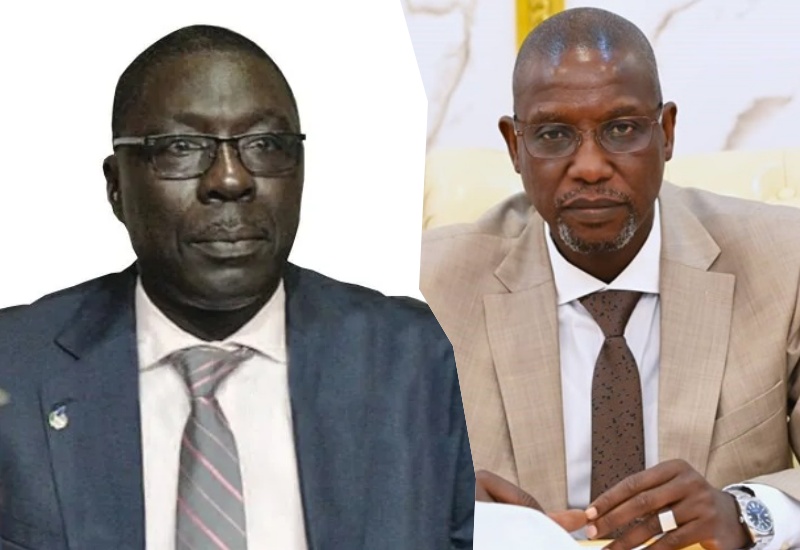Gambiaj.com – (BANJUL, The Gambia) – The National Assembly of The Gambia on Thursday adopted the highly contentious report of its joint committee investigating the Russian oil scandal, recommending a vote of censure against two serving ministers for their alleged misconduct.
The report, which had sparked intense political debate for weeks, implicated former Petroleum Minister Abdoulie Jobe, now Minister of Tourism, and former Inspector General of Police Abdoulie Sanyang, now Interior Minister. Both are accused of inappropriate conduct over their alleged role in granting a monopoly to Apogee FZC, the company at the heart of the scandal, whose owners face accusations of tax evasion, bribery, and money laundering.
The committee further accused the two ministers of interfering with police investigations following the arrest of Aurimas Steiblys, the key suspect in the oil importation. Steiblys was detained briefly and later released without charges before reportedly fleeing the country.
However, the report’s adoption did not come without fierce resistance. Heated exchanges erupted in the Assembly chambers, revealing deep divisions between the majority and minority blocs, as well as among some committee members themselves.
Lower Fulladu MP Gibbi Mballow led the charge against the report, accusing the committee of “witch-hunting” and questioning the evidence against the two ministers. “How can you recommend a vote of censure without concrete proof of corruption? This is nothing but a witch-hunt,” Mballow argued.
Amadou Camara, MP for Nianija, also rejected the report, declaring that while there was clear evidence of bribery and tax evasion, it was not Parliament’s duty to enforce governance issues. “We are lawmakers, not policy enforcers. If a minister is approved by the president, their actions become government policy,” Camara said.
Majority Leader and Sabach Sanjal MP Billay Tunkara, who is also a committee member, dismissed the report’s findings as “emotionally charged” and “unsubstantiated.” He contended that the report lacked evidence of wrongdoing, such as corruption or tax evasion.
However, Minority Leader Alagie Darboe rebutted Tunkara’s claims, accusing him of attempting to mislead the Assembly. Darboe praised the committee’s work, emphasizing that they had uncovered serious maladministration and corruption and had rightly referred unresolved issues to the appropriate authorities.
Other lawmakers voiced strong support for the report. Kebba Lang Fofana urged colleagues to adopt the report, even if some recommendations were amended. Wuli East MP Suwaibou Touray warned that corruption was destroying the country and demanded decisive action against the implicated officials.
Foñi Bintang MP Bakary K. Badjie called for the Assembly to set an example by censuring the two ministers. “This is not a witch-hunt. We need to start somewhere and show that holding public office comes with consequences,” he asserted.
Sheriff Sarr, Jeshwang MP and committee member, took personal offense at allegations of bias, declaring, “No one can bribe me. I come from a respectable family. We are not here to fool each other.”
Janjangbureh MP Omar Jammeh reminded lawmakers of their constitutional duty, saying, “We are not here for a joke. We are paid D100,000 monthly to do this job. Corruption is consuming our country, and this House is the only body that can fight it.”
Despite efforts by some majority lawmakers to delay the vote, the Assembly proceeded to adopt the report, paving the way for potential disciplinary action.
A source familiar with parliamentary procedures told The Standard that a separate motion would now be required to initiate the vote of censure. That motion would need the backing of at least two-thirds of the lawmakers to remove the ministers from office.
The Assembly’s action marks a critical moment in The Gambia’s ongoing struggle against corruption, raising questions about executive accountability and the power of Parliament to check ministerial misconduct.










